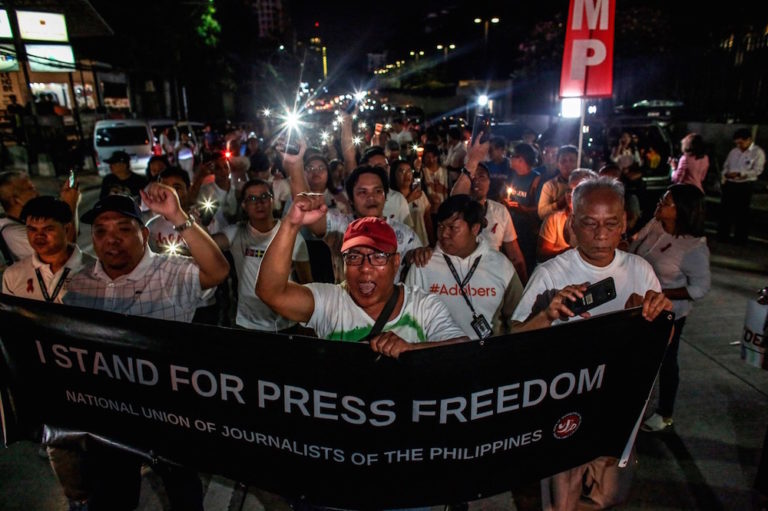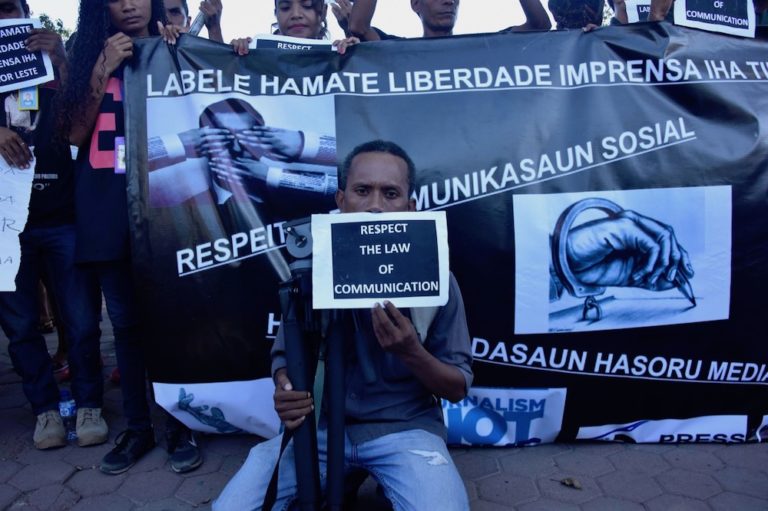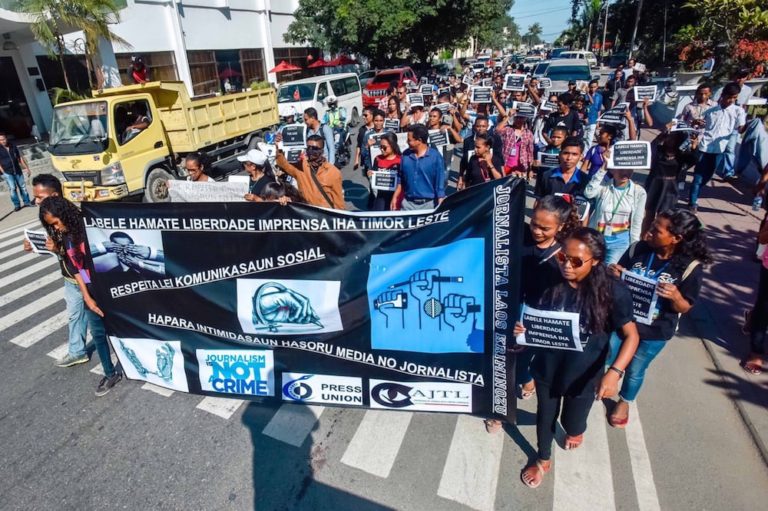(PINA/IFEX) – On 27 August 1999 (local date), the “Sydney Morning Herald” reported that more journalists were attacked as they tried to cover attacks in the East Timorese capital, Dili, by pro-Indonesian militia. The newspaper, which has staff in East Timor, said: “Several foreign media representatives were attacked when they went to an area of […]
(PINA/IFEX) – On 27 August 1999 (local date), the “Sydney Morning Herald”
reported that more journalists were attacked as they tried to cover attacks
in the East Timorese capital, Dili, by pro-Indonesian militia. The
newspaper, which has staff in East Timor, said: “Several foreign media
representatives were attacked when they went to an area of the town which is
a known stronghold for independence supporters. An Australian television
crew staying at the waterfront Dili Hotel … ran for their lives when thugs
climbed over the back fence and started shooting at them. They were believed
to be unhurt, but a Reuters photographer was shot in the leg.”
The “Sydney Morning Herald” also reported: “Witnesses in Dili saw militia
groups driving around streets hunting independence supporters and foreign
journalists. Several UN officials were bashed and shots were heard across
the town as night fell. ‘Herald’ journalist Mark Dodd saw militiamen firing
musket shots into a house near a UN complex. Several houses were burning and
others were shot at and looted. Residents had run from the streets and
locked themselves in their homes when the militias started rampaging late in
the afternoon. Elsewhere, ‘Herald’ researcher Yenny Zannuba saw an
Indonesian police officer shoot a man in the head from behind as he tried to
escape from two other men who were chasing him.”
The violence came four days before a referendum on possible independence
from Indonesian rule. Pro-Indonesian militia leaders told the rally at a
Dili sports ground they would prevent people from leaving East Timor from
the day of the ballot.
The “Sydney Morning Herald” said at least three people were killed in
violence which followed. It said: “Heavily armed Indonesian police, who
under a UN-brokered agreement are responsible for preventing violence before
and after the ballot, stood by and watched as much of the violence broke
out. Despite wearing their full riot gear and carrying shields, they ignored
the attacks by the militias. Mobs of independence supporters became enraged
and started throwing rocks when they saw police and militias together at
roadblocks. The militias…came to the rally with dozens of vehicles and
carrying high-powered firearms and traditional weapons like knives and
clubs. The floors of some four-wheel-drive vehicles were stacked with
rocks.”
The “Sydney Morning Herald” said Australian armed forces units have gone on
alert in preparation for a possible evacuation of foreigners.
Background Information
East Timorese are voting in a referendum on possible independence from
Indonesian rule for the former Portuguese colony of 800,000 people. Six
international media workers were killed when Indonesia invaded East Timor in
1975. Organisations such as the International Federation of Journalists
(IFJ) and Australian colleagues have called for investigations into
continuing allegations they were deliberately killed by Indonesian forces or
forces under Indonesian control (see IFEX alerts).
On 25 May, Indonesian and Australian journalists’ organisations announced
that they are opening a media safety office in Dili. This followed attacks
and threats by pro-Indonesian militia trying to stop journalists covering
violence and intimidation before the referendum.


